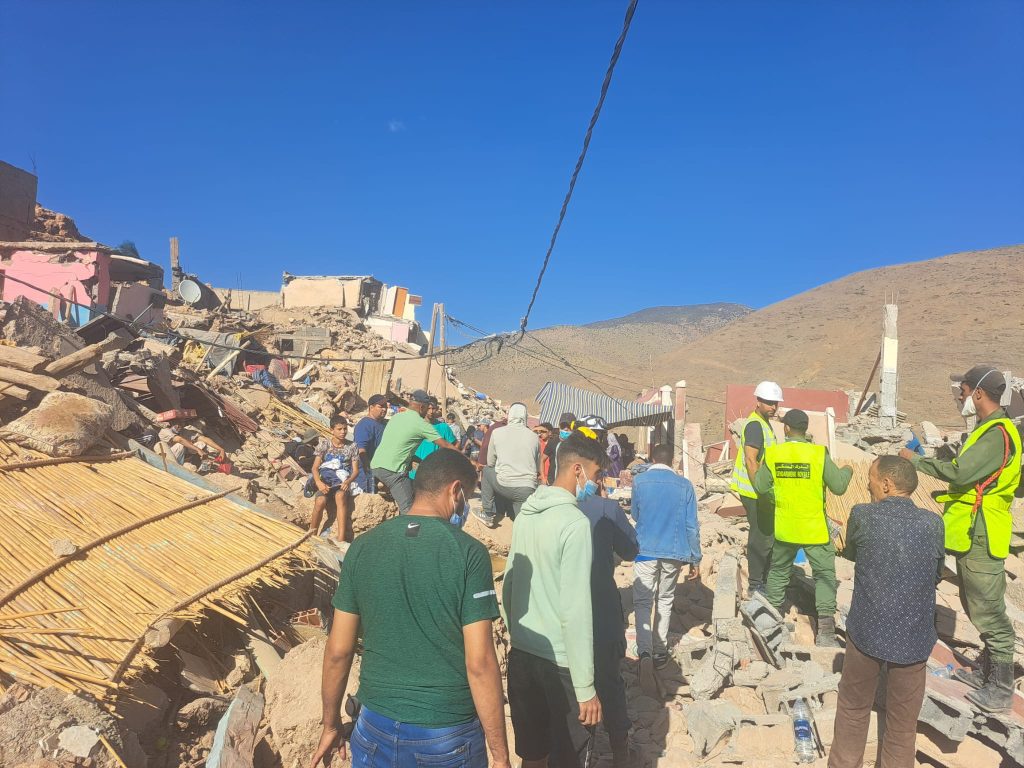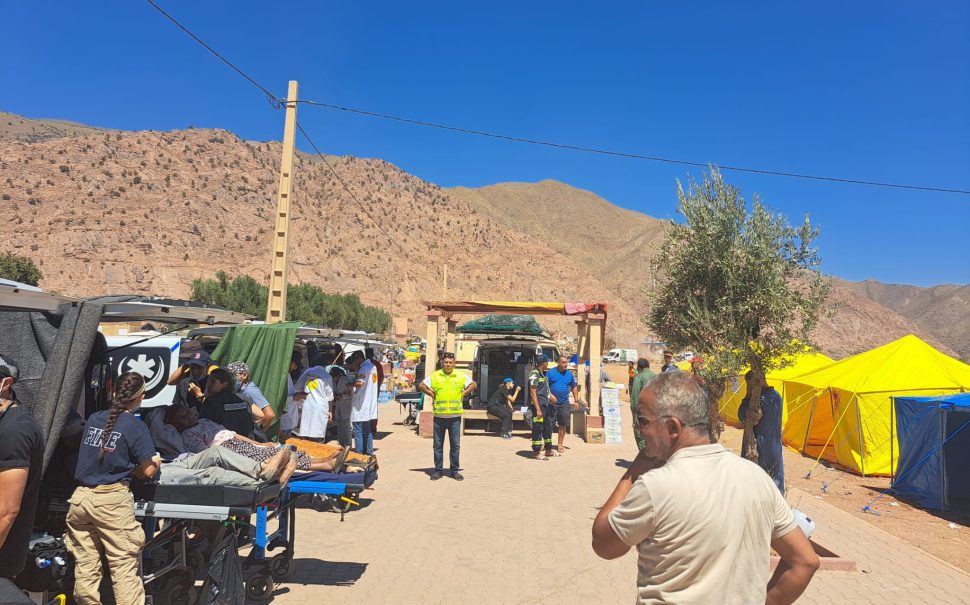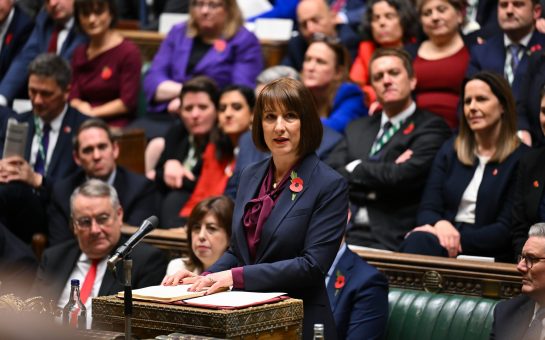UK-Med provides essential emergency health care when countries need it most. Despite their heroics, hardly anyone knows Manchester is their home.
It is like any other autumnal Friday in Manchester. The trams are hooting their way through St Peter’s Square, another train to the airport has been delayed at Oxford Road Station, and the occasional cyclist is still ignoring every red traffic light.
At the same time, it isn’t like any other Friday. The Ukrainian government has decided to evacuate all children from its Eastern border in anticipation of a further Russian assault; Afghanistan remains in turmoil following a series of earthquakes earlier in the month; Israel is ramping up its military efforts in the Gaza Strip’s northern region as a response to Hamas’ brutal attacks on 7 October.
All these crises require urgent medical aid, to ensure they do not deteriorate further.
UK-Med is often one of the first to the scene when such disaster strikes, providing emergency support in a vital attempt to bring light to the world’s darkest moments.
Based in Manchester, it is recognised by the World Health Organisation (WHO) and has tackled the likes of Ebola, the Moroccan earthquake, Russia’s invasion of Ukraine, and many more since 1988.
Despite such work, the volunteer group is hardly known within its home city – never mind beyond the trappings of the Pennines.
Founded by Professor Tony Redmond OBE in the late 1980s as a city-based emergency medical response team, it has since grown to a 1,000 strong register of helpers – each willing to place themselves in the way of danger to help others.
It works by providing a structure that allows clinicians to arrive within 24 hours of being requested by an affected state’s government.
This rapidity is lifesaving, and extremely complex.
What do they do?
Tom Godfrey holds the role of operations director at UK-Med. As such, he is responsible for ensuring the organisation is prepared for any situation that may arise as quickly as possible.
Sometimes, this means he is overseeing a deployment from the group’s Manchester headquarters. At other times, he is out there engaging in the work himself. It’s not the usual day job.
Godfrey has recently returned from leading a response team in eastern Libya, where approximately 11,000 are estimated to have been killed by an extraordinary flood.
Two dams burst in the region, with the following spill crushing all in its path – its impact made worse by the already poor infrastructure of a divided nation.
My biggest concern, in comparison, is ensuring my laptop’s microphone is working properly. These are the two worlds we live in. And yet he is still kind enough to ask how I am.
A bit of small talk ensues, before I jump into questioning him as much as possible about his organisation. Who wouldn’t want to know such details?
The basics are our starting point.
The answers to my questions are direct and efficient. I would expect nothing less from a man whose discussions are timed by the second, not the minute.
“We’re an emergency medical team – the only British emergency medical team verified by WHO for all the capabilities that we have.
“As a result, we can deploy NHS standard clinical support within 24 hours to virtually any crisis in the world. So, when local capabilities are overwhelmed – for whatever reason – we can go in quickly.”
My mind immediately imagines a medical version of something akin to the Thunderbirds, consisting of rocket ships emblazoned with the NHS logo ready to jet off to help anyone requesting its world-class aid.
Beyond my immaturity, the reality is a lot more heartwarming. UK-Med consists of around 1,100 volunteers, each having signed their name to a register confirming their willingness to supply other nations with help in their time of need.
“Our unique strength is that we’ve got this huge register of staff who we can draw from NHS trusts and from our own internal register,” he said.
“So, we can really send out top quality specialisms very quickly. Whilst we’re quite a small organisation on paper, we do have the niche specialisms that other bigger organisations don’t have.
“For example, we can provide trauma surgeons and orthopaedic surgeons. We can provide specialists who can help civilians to prepare for a nuclear, chemical, and biological attacks.”

Hurdles can be found when considering the complex logistics of actually being able to send a team out into these danger zones.
The first issue concerns a nation making an official plea for help in the aftermath of a disaster.
“We don’t go unless the ministry of health wants us to, so we work within WHO’s mechanisms. If a ministry asks us for support, that will be channelled to WHO. Then, a global call will go out to all medical teams in the area.
“The model that works for us is working together with those countries.
“It doesn’t really work if we don’t do that.”
After such communication, matters proceed to the finer details of deployment.
“The initial phase is going in for an assessment, to work out how and where we’re going to operate.
“There are lots of high-level meetings [involved] to try to ensure what we’re putting in is going in at the right place. That’s completed as quickly as possible.
“Then you’re bringing in your clinicians and your supplies and that set up phase of your response is also fast-paced and fairly all-consuming.”
The toll it takes
The challenges brought about by providing medical aid are not confined to practical support.
It places a significant mental strain on these volunteers, exposing them to experiences almost alien to human nature.
They are enough to torture memories for a lifetime and are sadly experienced on a near daily basis by the clinicians of UK-Med during their deployments.
Godfrey, in discussing this matter, refers to his personal engagement with the topic after recent missions abroad.
“In Libya just now some were quite upset, having to deal with a lot of mental health cases for people who had lost young children, having to listen to their stories and provide them with emotional support.
“A lot of the time it’s quite challenging. The work we do in Ukraine is quite daunting, dealing with those coming from the front line.”
“They do a lot of difficult work. There’s a staff support hotline they have access to from an external provider. It’s confidential so we don’t know the details, but everyone’s informed of what’s available.
“Some do request it.”
Another factor often considered is the personal security each volunteer has while on deployment. Visiting the sites of humanitarian crises inevitably increases the chances of death and danger for those in attendance.
Storm Daniel struck #Libya over a month ago, bringing tragedy to the port city of #Derna.
— UK-Med (@UKMed) October 17, 2023
Our team has deployed to Libya and has begun providing #healthcare using mobile clinics. The team has been unloading medical supplies to ensure that their clinics are self-sufficient. pic.twitter.com/mZLxk3mOot
This issue is contemplated seriously by volunteers. Their very lives will likely be put to the test.
“It’s the nature of being part of an emergency medical team. No one’s obliged to go either. Nobody’s told to get on that plane.
“People want to go and want to help. There are certain risks and people are briefed on those risks.”
Balancing the books
Life as a non-government organisation can be similarly dangerous. There are several difficulties to overcome to ensure the smooth operation of UK-Med, such as funding. In fact, especially funding.
Presently, the group relies on a range of sources for its financial backing. These include the UK Government, private donors, and the British public.
“The challenges are often the external ones. If there’s a crisis and we want to set up a field hospital, we need funds for that.
“Increasingly we’re moving towards a model where we have our own funds, so we can deploy without waiting for funders to greenlight that.”
Another challenge arising for British NGOs is the need to persuade backers of their work’s importance.
Since 2020, UK government international aid has been significantly altered, leading to a substantial reduction to the amount of money previously invested in this area.
Subsequently, the likes of UK-Med are under pressure to justify their work.
A UK-Med report released in 2021 titled ‘Global Health Responders – A Shot in the Arm for the NHS’ revealed that, following a survey issued to its members, between 83 and 98% of volunteers experienced improvements in their “clinical skills, resilience, and ability to deliver quality improvements for patients”.
Discussing this topic, Godfrey said: “[The report] really demonstrated that whilst we’re going out and giving support, those clinicians themselves are learning new skill sets on the job and learning how to work in new contexts.
“They are working in different ways and going back to those trusts, showing their experiences, and having more confidence and a wider variety of skills. I think it’s sort of win-win.”
From the stocking of essential resources to the sustenance of volunteers, Godfrey tells me public donations are of the utmost necessity.
“Without public donations, there’s a real limit to the kind of contexts that we can go into. We need to allow ourselves to deploy into the worst humanitarian contexts irrespective of political decisions.
“Any sort of contribution will be used effectively.”
Beyond these issues, however, exists a strong feeling of pride in the work of UK-Med. It aims and manages to reflect the best in humanity.
Godfrey attempts to summarise this sentiment, through a message not only to the wider reaches of the country but also for the people of Manchester – the soul of the operation, even if the area doesn’t fully know it.
“If you want to support a British organisation that’s having a really strong impact in some of the worst humanitarian crises in the world, then UK-Med is a really good one to support.
“We’re proud of being from Manchester and we’re really proud of the support we’ve received from the local community in the city.”
It would be hard to think of a cause more deserving.
If you would like to donate to UK-Med, you can do so via this link: https://www.uk-med.org/donate-now
Featured image credit: UK-Med




